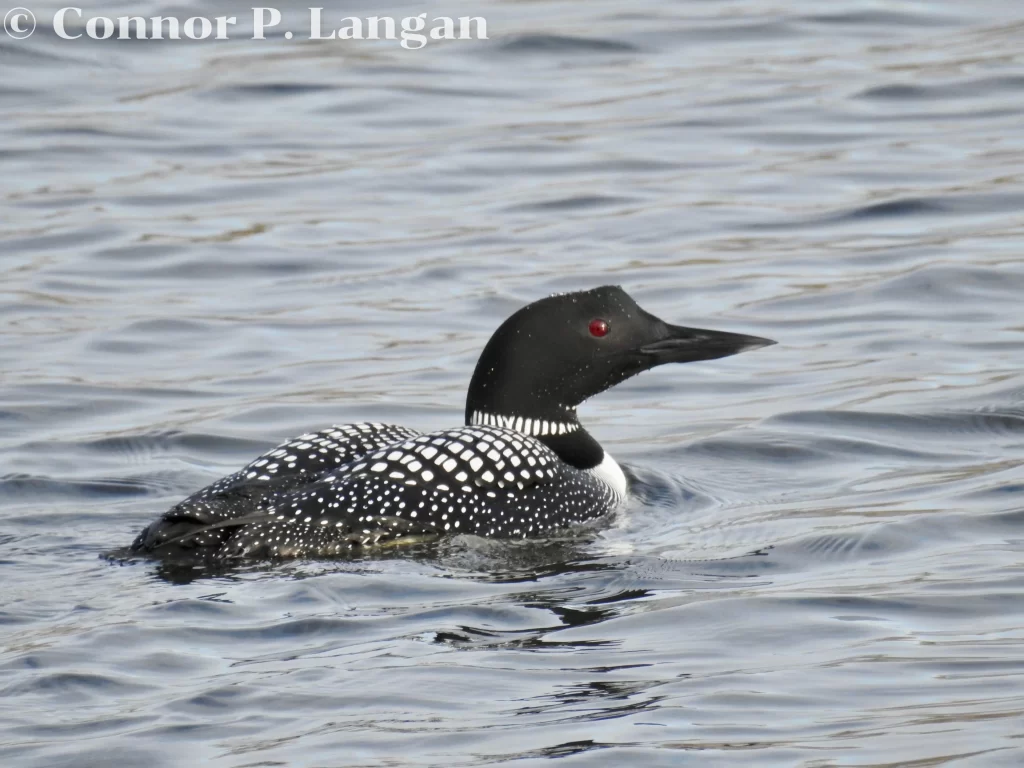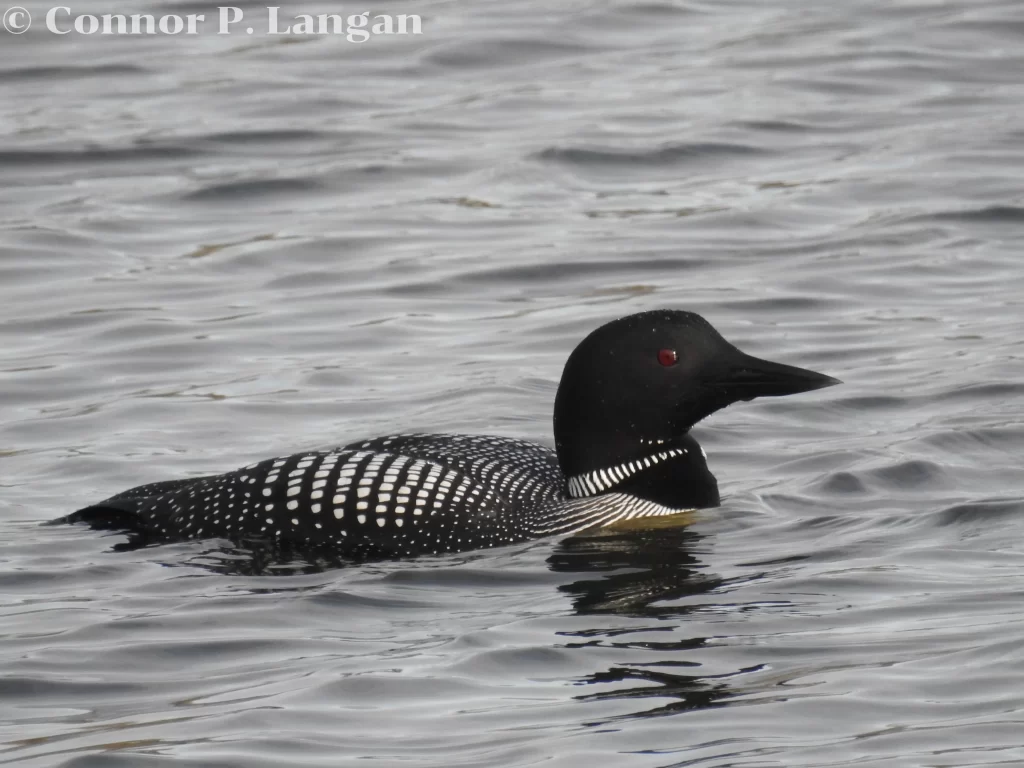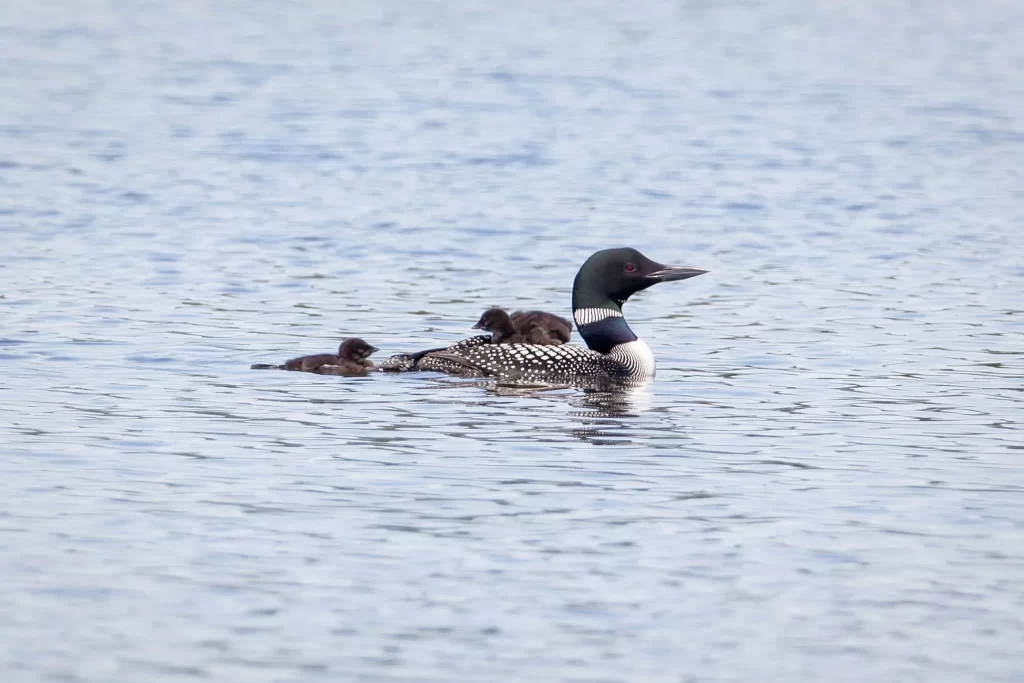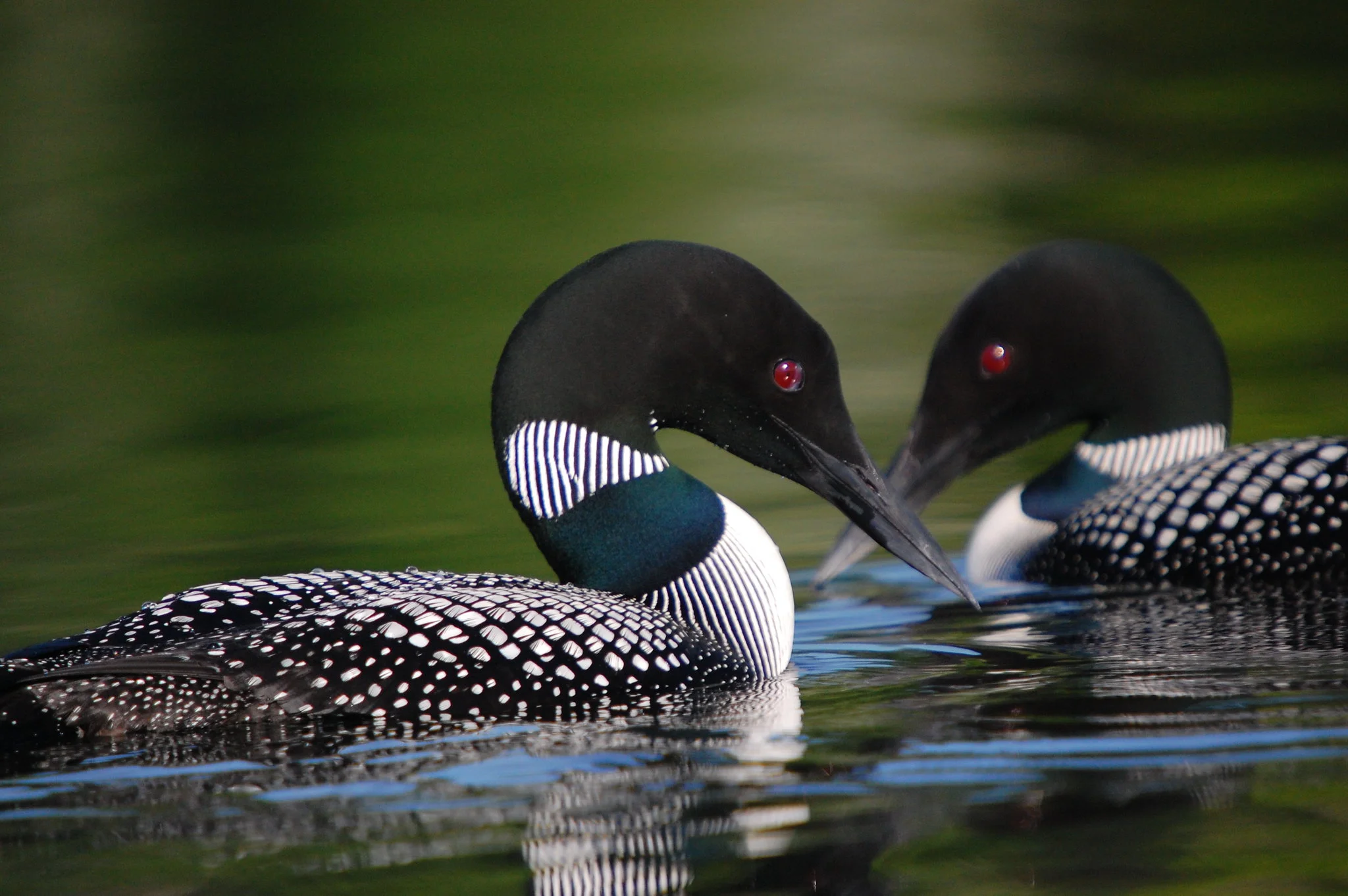Those in the northern United States and Canada are very familiar with loons. These endearing birds often nest on lakes of various sizes throughout the boreal forest, meaning many have become acquainted with these creatures. It seems the more one watches a loon, the more questions they will have. If you notice a pair of loons on a lake year after year, you may wonder about their story. How long does a loon live – do loons mate for life?
Although loons may indeed reproduce with the same partner for many years, these birds do not tend to mate for life. Several reasons explain why loons don’t typically mate for life. First, loons enjoy long lives, so an individual may lose partners throughout their life as they die of age or other circumstances. Moreover, loons are territorial and can be aggressive when competing for a prime territory and mate. This results in some turnover as new alpha loons lay claim to a territory.
Table of Contents

Therefore, loons rarely choose to willingly leave a mate. Instead, they may lose their mate as it dies from old age, or a loon may be displaced by a more competitive loon. Though loons may not have the same mate for their entire lives, they are loyal to their mates. Research has consistently shown that loons do not engage in extra-pair copulations.
Overall, loons are far more loyal than smaller birds like woodpeckers or mockingbirds. Now that we know the answer to the question, “Do loons mate for life?” it’s time to discuss how loons choose their mates.
How Do Loons Choose Mates?
Now that you know a little bit more about loon reproduction, you may be curious about how loons select their mates. Do loons intentionally seek out a mate with whom they’ve had success in the past?
It turns out that loons show little loyalty to previous mates, as this is not a factor that goes into selecting a mate. Instead, loons seem to principally care about a specific territory. Therefore, when a loon returns to a breeding territory in the spring, it will be inclined to form a pair bond with whatever loon of the opposite sex is present on the territory.
Studies have shown that loons rarely mate with the same individual for more than 5 years. However, some loon pairs have remained together for 17 years.
How Do Loons Mate?
After a loon pair has formed and the couple are ready to cement their bond, you may be curious about loon love. So, how do loons mate?
Although loons are adapted to life in the water, mating takes place on land – a place where they’re terribly uncoordinated. As you may imagine, this process is far from a graceful one.
Essentially, a pair of loons will drag themselves out of the water where they will mate on the edge of the land surface. Mating will be quick and efficient, as the loons are very vulnerable when they’re exposed on land.
When Do Loons Mate?
Those who live within the breeding territory of loons likely know about when to expect loons to make their annual returns. However, many are curious about how quickly loons find partners and mate after their returns. When do loons mate?
The loon mating season always takes place in the spring, but the exact timing depends on which of the 5 types of loons is in discussion. Most loon mating takes place in April, but Yellow-billed Loons do not tend to mate until late May.
Before mating, a pair of loons must engage in courtship with one another. Pairs share synchronous swimming bouts and coordinate dives with one another to form a pair bond. A pair will copulate once a pair bond has been solidified.

Where Do Loons Lay Their Eggs?
Loons construct nests in preparation for egg-laying. The nest is an elevated platform built adjacent to water. One such type of nest is constructed by tossing plants and mud into the area where the nest is intended to be built. Other nests may simply be a low-lying area in the ground lined with plants. Loons may modify the nest throughout the breeding season in response to changing water levels.
Loons are very clumsy on land, so tending to their nest is one of the few times they aren’t found in water.
When Do Loons Have Babies?
Seeing loon chicks swim around is one of the highlights of summer for those living among loons. Those eager to see loon babies will be eager to know when to expect them, so when do loons have babies?
Many factors impact when loon babies hatch from eggs. First, the weather will dictate when loon eggs can be laid. Considering that loons nest in boreal forests and arctic tundra, many of the ponds and lakes in which they breed will not be thawed until April or May. Moreover, loons will not lay eggs if water levels are actively fluctuating, so they may have to wait several weeks for the water in their breeding habitat to reach a consistent level.
Most egg-laying will take place by late May, but some loons may not lay eggs until July. There are even some cases of loons laying eggs in August. Loon eggs generally take between 24 – 29 days to hatch. Therefore, loon babies will emerge just shy of a month after egg-laying.
Speaking of eggs hatching, how many babies do loons have?
How Many Babies Do Loons Have?
Loons are a long-lived species, meaning they produce few offspring every breeding season. The minimal number of young loons produce every year can surprise some who compare their output to the number of eggs that geese lay. Females typically lay between 1 – 2 eggs in a breeding season – a third egg is very rare. Loons are capable of replacing eggs within a nest if the first clutch is destroyed.

Baby loons are not helpless, but they rely on their parents for food until they are about 2 months old. They are fuzzy and dark brown, but they soon grow out of these feathers and replace them with flight feathers. Common and Yellow-billed Loons are the only species known to carry chicks on their backs. Ornithologists suspect that this behavior exists as a means of helping chicks avoid being eaten by fish or turtles when they’re still tiny.
How Long Do Loons Live?
I’ve mentioned several times that loons are long-lived species, but how long do they live, exactly? Loons live long lives as far as birds are concerned. Common Loon lifespans have been studied more than any of the other loons, and it has been found that they may live for as long as 35 years.
The lifespans of other loon species are not as well known. Yellow-billed Loons can likely survive for as long as Common Loons given the right conditions. Meanwhile, Red-throated, Pacific, and Arctic Loons may live for as many as 30 years.
Given that loons can live such long lives, it is no surprise that the answer to the question, “Do loons mate for life?” is typically no.
At What Age Do Loons Start Breeding?
The long lives of loons mean that they do not reach breeding age very quickly. It takes several years for loons to mature and reach a point where they’re ready to compete for a territory and mate. Thus, the breeding age for loons is typically 3 – 7 years old.
Conclusion
I’ve now thrown a lot of information at you regarding loon mating, so allow me to recap the main points from this article:
- Do loons mate for life?
- No, loons do not typically mate for life.
- How many babies do loons have?
- Loons typically only have 1-2 babies annually.
- How do loons mate?
- Loons mate by dragging themselves onto land where they quickly copulate.
- When do loons mate?
- The peak loon mating season is April through May.
- When do loons have babies?
- Many loons lay eggs in late May, but some may not lay eggs until late July.

